Jefferson Era 1800-1820
History
Adams-Onis Treaty
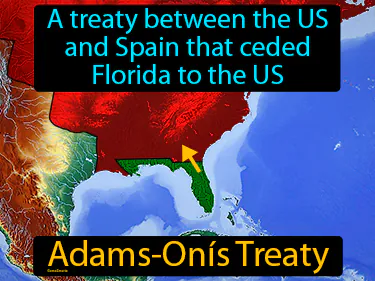
A treaty between the US and Spain that ceded Florida to the US. Adams-Onis Treaty. This treaty, in 1819, gave Florida to the US and settled a boundary dispute with Spain.
Andrew Jackson
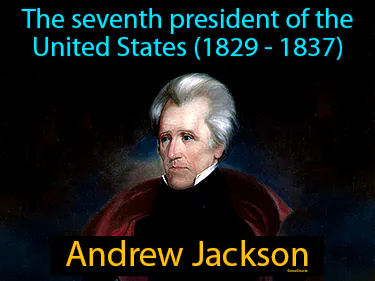
The seventh president of the United States 1829 - 1837. Andrew Jackson. Andrew Jackson was a controversial leader known for his populist approach and implementation of policies like the Indian Removal Act.
Battle of Lake Erie
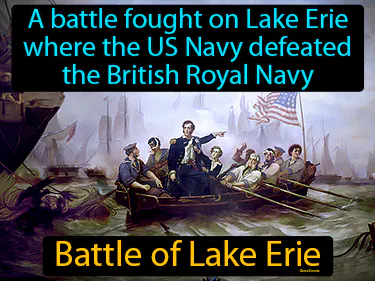
A battle fought on Lake Erie where the US Navy defeated the British Royal Navy. Battle of Lake Erie. It was a crucial American naval victory in the War of 1812 that secured control of the lake.
Battle of New Orleans
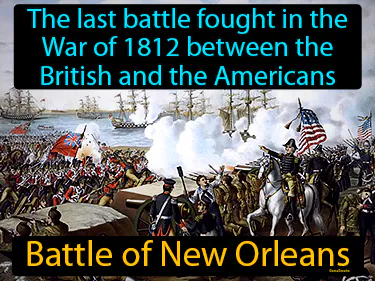
The last battle fought in the War of 1812 between the British and the Americans. Battle of New Orleans. The Battle of New Orleans was a decisive American victory that took place after the peace treaty was signed, making Andrew Jackson a national hero.
Battle of Tippecanoe
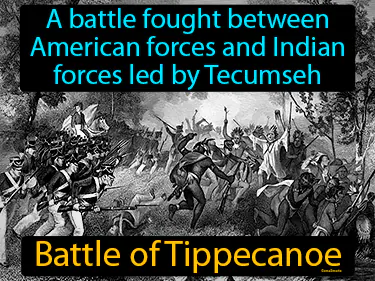
A battle fought between American forces and Indian forces led by Tecumseh. Battle of Tippecanoe. The Battle of Tippecanoe was a conflict in 1811 between U.S. troops and Native American warriors led by Tecumseh, which helped increase tensions leading to the War of 1812.
Convention of 1818
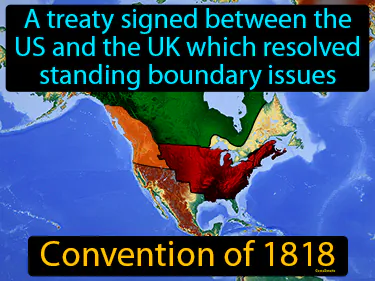
A treaty signed between the US and the UK which resolved standing boundary issues. Convention of 1818. The Convention of 1818 was an agreement between the US and the UK that set the 49th parallel as the border between US and Canada from the Lake of the Woods to the Rocky Mountains.
embargo
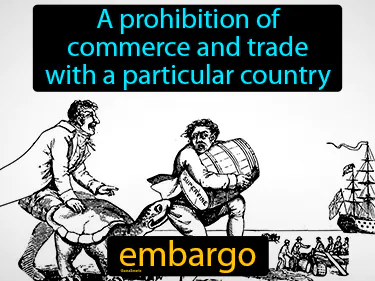
A prohibition of commerce and trade with a particular country. Embargo. In history, an embargo is when a government stops trade with another country to pressure them to change their policies.
Embargo Act
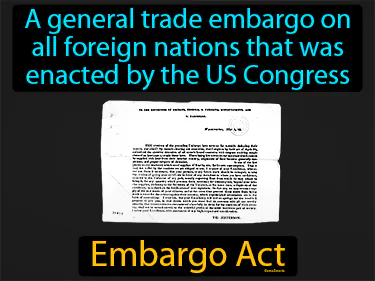
A general trade embargo on all foreign nations that was enacted by the US Congress. Embargo Act. The Embargo Act of 1807 was a law that stopped American ships from trading with foreign countries to avoid conflicts and pressure Britain and France during the Napoleonic Wars.
Hartford Convention
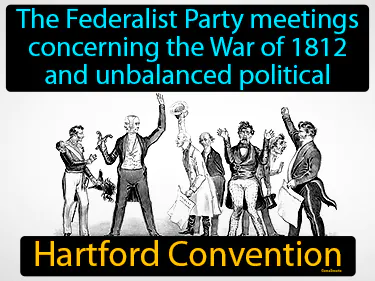
The Federalist Party meetings concerning the War of 1812 and unbalanced political power. Hartford Convention. The Hartford Convention was a gathering where New England Federalists discussed their grievances about the War of 1812 and proposed constitutional amendments to limit federal power.
impressment
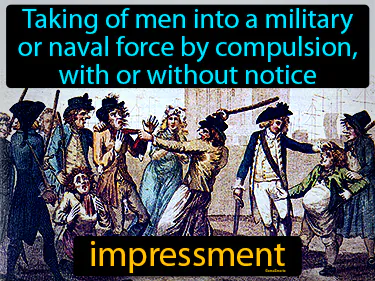
Taking of men into a military or naval force by compulsion, with or without notice. Impressment. Impressment is the forced recruitment of sailors into military service, most notably used by the British Navy in the 18th and early 19th centuries.
James Madison
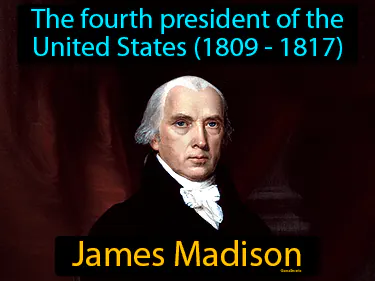
The fourth president of the United States 1809 - 1817. James Madison. James Madison is known as the "Father of the Constitution" for his role in drafting and promoting the U.S. Constitution and the Bill of Rights.
John Adams
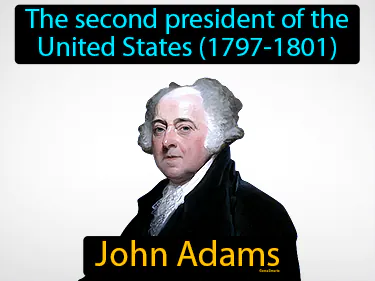
The second president of the United States 1797-1801. John Adams. John Adams was a Founding Father and the first vice president before serving as president.
John Marshall
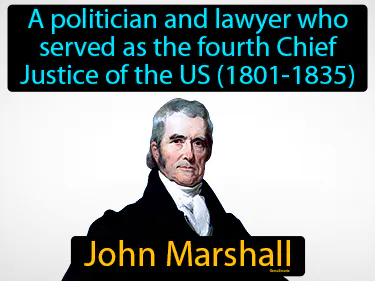
A politician and lawyer who served as the fourth Chief Justice of the US 1801-1835. John Marshall. He established the principle of judicial review, strengthening the power of the Supreme Court.
judicial review
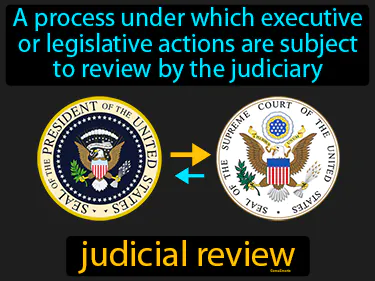
A process under which executive or legislative actions are subject to review by the judiciary. Judicial review. In History, judicial review is when courts decide if laws or actions by the government follow the Constitution.
Lewis and Clark expedition
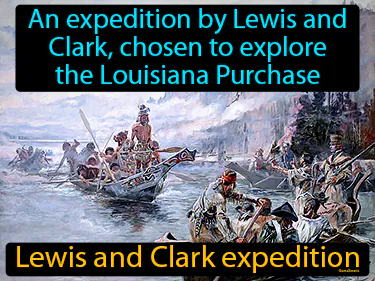
An expedition by Lewis and Clark, chosen to explore the Louisiana Purchase. Lewis and Clark expedition. The Lewis and Clark Expedition was a journey in the early 1800s to explore and map the newly acquired western lands of the United States.
Louisiana Purchase
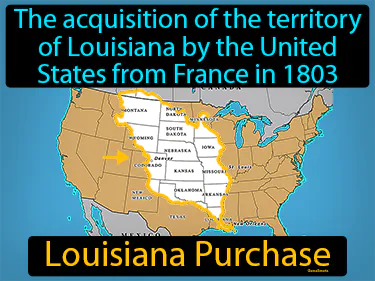
The acquisition of the territory of Louisiana by the United States from France in 1803. Louisiana Purchase. It was when the U.S. bought a huge area of land from France, doubling its size.
Marbury v Madison
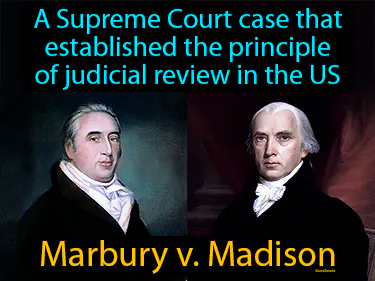
A Supreme Court case that established the principle of judicial review in the US, Marbury v Madison. It is the 1803 decision where the Supreme Court gave itself the power to declare laws unconstitutional, shaping the balance of power in the US government.
Meriwether Lewis
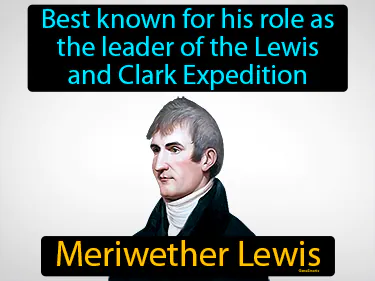
Best known for his role as the leader of the Lewis and Clark Expedition, Meriwether Lewis. He was an American explorer who mapped the western United States in the early 1800s.
Non-Intercourse Act
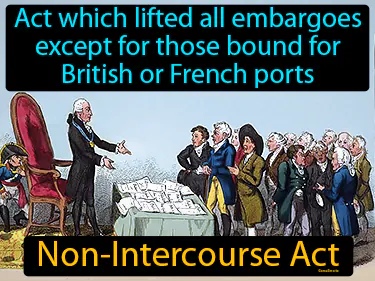
Act which lifted all embargoes except for those bound for British or French ports. Non-Intercourse Act. The Non-Intercourse Act was a U.S. law from 1809 that banned trade specifically with Britain and France to pressure them to respect American neutrality during the Napoleonic Wars.
Oliver H Perry
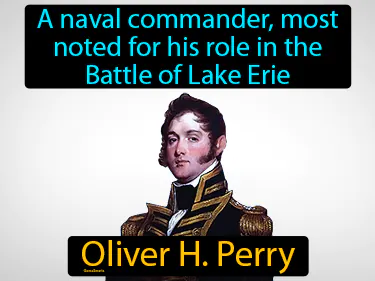
A naval commander, most noted for his role in the Battle of Lake Erie. Oliver H Perry. He was an American naval officer who secured a crucial victory during the War of 1812.
Rush-Bagot Agreement
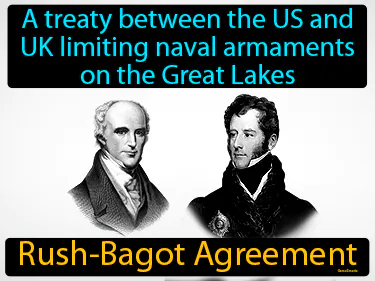
A treaty between the US and UK limiting naval armaments on the Great Lakes. Rush-Bagot Agreement. The Rush-Bagot Agreement is a treaty from 1817 that limited naval forces on the Great Lakes between the US and the UK, promoting peace after the War of 1812.
Sacagawea
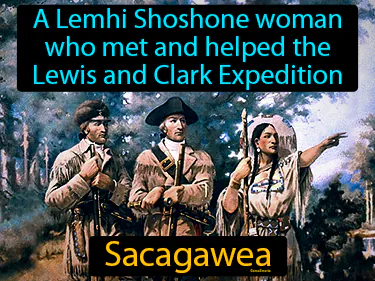
A Lemhi Shoshone woman who met and helped the Lewis and Clark Expedition. Sacagawea. She was a Native American guide and interpreter who played a key role in the success of the Lewis and Clark Expedition.
Tecumseh
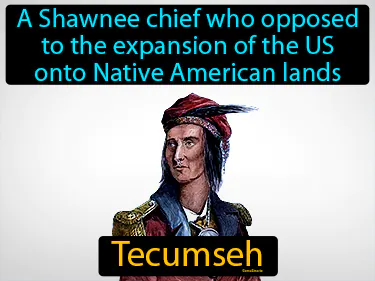
A Shawnee chief who opposed to the expansion of the US onto Native American lands. Tecumseh. Tecumseh was a Native American leader who tried to unite tribes against American settlers in the early 19th century.
Thomas Jefferson
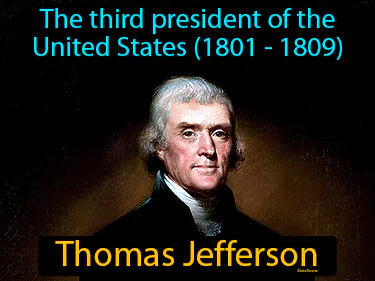
The third president of the United States 1801 - 1809. Thomas Jefferson. He was a Founding Father who wrote the Declaration of Independence.
Treaty of Fort Jackson
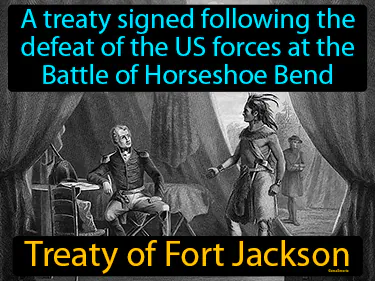
A treaty signed following the defeat of the US forces at the Battle of Horseshoe Bend. Treaty of Fort Jackson. It was an agreement in 1814 where the Creek Nation ceded a large portion of their land to the United States after losing a major battle.
Treaty of Ghent
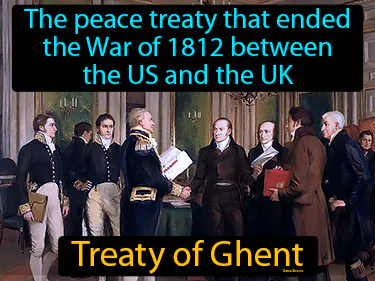
The peace treaty that ended the War of 1812 between the US and the UK. Treaty of Ghent. It was an agreement that officially ended the conflict, with no territorial changes.
USS Constitution
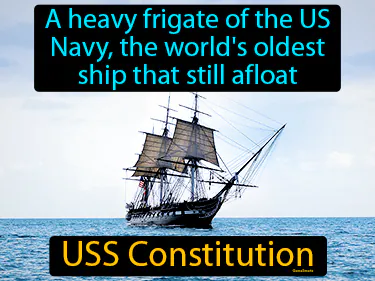
A heavy frigate of the US Navy, the world's oldest ship that is still afloat USS Constitution. The USS Constitution is a historic warship famous for its role in the War of 1812 and is known as "Old Ironsides."
War Hawks
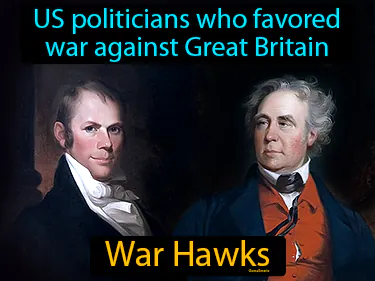
US politicians who favored war against Great Britain. War Hawks. War Hawks were early 19th-century American politicians who advocated for the War of 1812 to assert national honor and expand U.S. territory.
William Clark
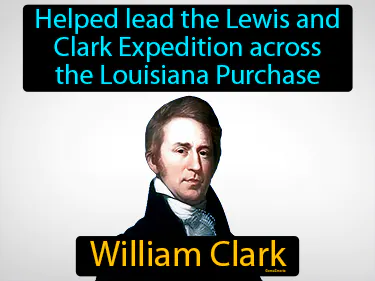
Helped lead the Lewis and Clark Expedition across the Louisiana Purchase. William Clark. He was an explorer who mapped the newly acquired western territories of the United States.
Zebulon Pike
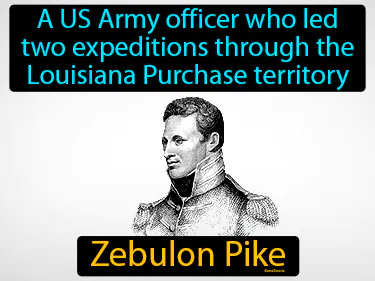
Zebulon Pike was a US Army officer who led two expeditions through the Louisiana Purchase territory. He is known for exploring areas that are now parts of Colorado and New Mexico.